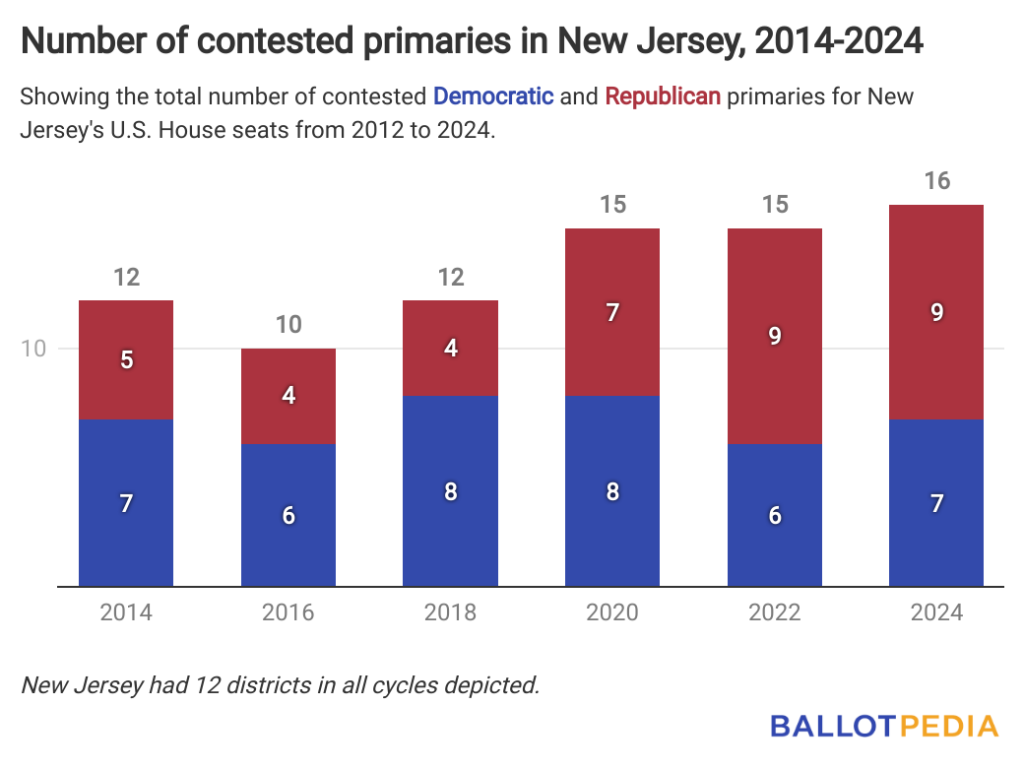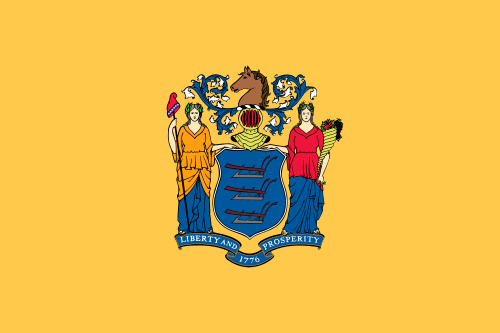This year’s filing deadline for candidates running for Congress in New Jersey was March 25, 2024.
Fifty candidates, including 25 Democrats and 25 Republicans, are running for New Jersey’s 12 U.S. House districts. That’s 4.17 candidates per district, less than the 4.67 candidates per district that ran in 2022 but the same as the 4.17 candidates per district that ran in 2020.
These will be the first primaries to take place since U.S. District Judge Zahid Quraishi issued a preliminary injunction blocking the use of the county line primary ballot design in New Jersey’s Democratic primaries. To learn more about the decision, click here.
Here are some other highlights from this year’s filings:
- The 3rd Congressional District is the only open district, meaning no incumbents filed to run. That’s the same as in 2022, when one district was open. There were no open districts in 2020, two in 2018, none in 2016, and three in 2014.
- Incumbent Andrew Kim (D-3rd) is not running for re-election to run for the U.S. Senate.
- Nine candidates—five Democrats and four Republicans—are running for the open 3rd Congressional District, the most candidates running for a seat in New Jersey this year.
- Sixteen primaries—seven Democratic and nine Republican—are contested this year, the most this decade. Fifteen primaries were contested in 2022 and 2020, respectively. There were 12 contested primaries in 2018, 10 contested primaries in 2016, and 12 in 2014.

- Seven incumbents—five Democrats and two Republicans—are facing primary challengers this year. That’s one more than in 2022, when six incumbents faced primary challengers, but less than in 2020, when eight faced primary challengers.
- Candidates filed to run in the Republican and Democratic primaries in all twelve districts, meaning no seats are guaranteed to either party.
New Jersey and four other states—Iowa, Montana, New Mexico, and South Dakota—are holding primary elections on June 4.
In New Jersey, the winner of the primary election is the candidate who receives the greatest number of votes, even if they do not win more than 50 percent of the vote.


